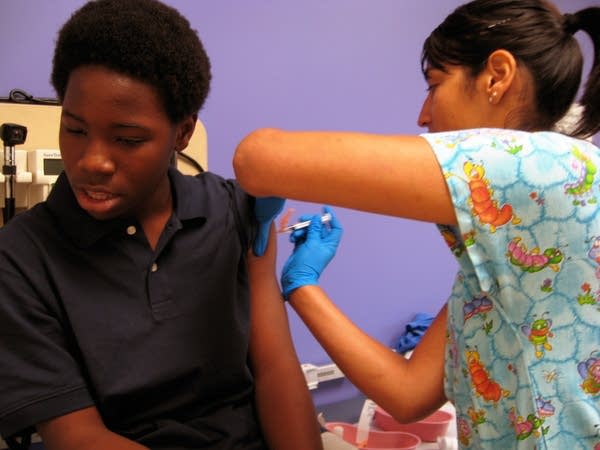Vaccines, public health and personal choice

Go Deeper.
Create an account or log in to save stories.
Like this?
Thanks for liking this story! We have added it to a list of your favorite stories.
Measles are running rampant. More than 700 cases have been reported in the United States since the beginning of 2019. That's the highest number of cases since measles was eradicated here almost two decades ago.
Parents who are reluctant to vaccinate their kids are a big part of the reason — a trend the World Health Organization has labeled one of the top threats to global health. In outbreak areas, like New York, governments are fighting back — threatening fines or jail time for parents who aren't vaccinating. But is that the right tactic?
We talked about vaccine hesitancy. We didn't debate the efficacy of vaccines; the science is in. But we did talk about how to balance personal choice with public safety. Is it as simple as requiring everyone to get vaccinated? Or is there a better way to get people to buy in?
Guests:
• Elisa (EJ) Sobo, a sociocultural anthropologist specializing in health, illness and medicine, and a professor of anthropology at San Diego State University.
• Alison Buttenheim, a professor of health policy at the University of Pennsylvania who studies the effects of vaccine hesitancy.
To listen to the full discussion you can use the audio player above.
Turn Up Your Support
MPR News helps you turn down the noise and build shared understanding. Turn up your support for this public resource and keep trusted journalism accessible to all.



